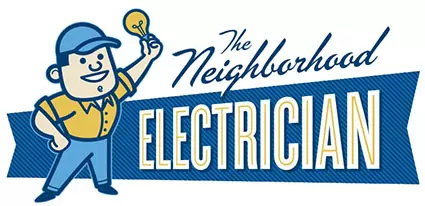The Benefits Of Home Generators: Why Every Homeowner Should Invest In One
Homeowners, have you ever experienced a power outage? If so, you know how inconvenient and annoying it can be. From having to throw away perishable food to not being able to access the internet and heat or cool your home, an unexpected blackout can wreak havoc on our daily lives. Fortunately, the solution is simpler than you’d think: investing in a home generator. In this article, we’ll explore why every homeowner should invest in one of these helpful devices and the advantages they offer. We’ll also provide some tips for finding the best generators for your individual needs. So read on to learn more about why everyone should consider getting a home generator today!
What is a home generator?
A home generator is a backup power system that provides electricity to your home in the event of a power outage. Home generators can run on either natural gas or propane, and can be used to power your entire home or just key appliances.
There are several benefits to having a home generator, including:
-Providing peace of mind in the event of a power outage
-Allowing you to keep your lights on, heat or air conditioning running, and fridge stocked during an outage
-Being a less expensive option than a backup battery system
-Providing emergency power for medical devices and other critical needs
-Allowing you to keep your home safe during an outage
Home generators come in a variety of sizes, with different wattage outputs to accommodate different homes and needs. Be sure to consult a qualified electrician when selecting the right generator for your home.
The benefits of home generators
There are many benefits to owning a home generator. Perhaps the most obvious benefit is that it can provide your home with power during a power outage. That means no more candles or flashlights during a storm! In addition to providing backup power during an outage, a home generator can also save you money on your energy bill. By generating your own electricity, you can avoid paying the high costs associated with utilities. And, if you generate enough electricity, you may even be able to sell it back to the grid! Finally, owning a generator can give you peace of mind. Knowing that you have a backup plan in place in case of an emergency can help you rest easy at night.
The different types of home generators
There are several different types of home generators available on the market, each with its own set of benefits. Portable generators are the most affordable option and can be used in a variety of different situations. Standby generators are a more expensive option, but offer the benefit of automatic operation in the event of a power outage. Whole-house generators provide power to your entire home and can keep your lights on and your appliances running during a power outage.
How to choose the right home generator for your needs
There are a few things to consider when choosing the right home generator for your needs. The size of the generator is important, as is the type of fuel it uses. You’ll also want to think about how often you’ll need to use it and what kind of power output you’ll need.
Here are a few things to keep in mind when choosing the right home generator for your needs:
1. The size of the generator. You’ll need to choose a generator that’s large enough to power all the appliances and electronics you want to use in case of a power outage. But, you don’t want one that’s too large and bulky since that can be difficult to move around and store.
2. The type of fuel it uses. Home generators usually run on either gasoline or diesel. Gasoline generators are typically less expensive, but they require more maintenance and can be difficult to start in cold weather. Diesel generators cost more upfront, but they’re more reliable and easier to maintain.
3. How often you’ll need to use it. If you live in an area with frequent power outages, you’ll want a generator that’s easy to start up and can run for long periods of time without needing a break. On the other hand, if you only need it occasionally, a less powerful model might suffice.
4. What kind of power output you need. This will depend on what kinds of appliances and electronics you want to be able to use in case of a power outage. Think about what you need to run, and make sure the generator you choose can handle the load.
By taking these factors into consideration, you should be able to find the right home generator for your needs. Be sure to read reviews before making a purchase, and talk to an expert if you need help selecting a model that meets your needs.
Home generator maintenance tips
As a homeowner, you know that there are many things that need to be done in order to keep your home in tip-top shape. From regularly vacuuming and dusting to painting and repairs, there is always something that needs to be done in order to maintain your home’s value and appearance. However, one thing that is often overlooked when it comes to home maintenance is the generator.
While most people think of generators as only being used during a power outage, they can actually be used for much more. A generator can be a great way to provide backup power for your home in case of an emergency, but they can also be used to power certain appliances or devices during a power outage. Additionally, generators can be used to provide power for outdoor events or camping trips.
No matter how you plan on using your generator, it is important to make sure that it is properly maintained. Below are some tips on how to maintain your home generator:
1. Check the oil level regularly: Just like with any other type of engine, the oil in your generator needs to be changed regularly. Depending on how often you use your generator, you may need to change the oil every few months or so.
2. Clean the air filter: The air filter helps to keep dirt and debris from getting into the engine of your generator. Over time, the air filter can become clogged with dirt and debris, which can reduce the efficiency of your generator.
3. Test the generator regularly: You should make sure to test your generator on a regular basis in order to make sure that it is working properly. This will help you identify any issues early on before they become more serious and costly to repair.
4. Inspect the wiring and connections: Make sure to periodically inspect all the wiring and connections of your generator to ensure there are no frayed or damaged wires, as these can lead to fire hazards or other issues.
5. Store the generator properly: If you are not using your generator for an extended period of time, make sure to store it in a dry, cool place such as a shed or garage. This will help protect it from the elements and make sure that it is ready when you need it.
By following the above tips, you can help make sure that your generator is in good working order and ready to use when you need it.
Conclusion
Home generators are a great investment for any homeowner looking to increase their home’s security, reliability, and comfort. With the added peace of mind that comes with having backup power in case of an emergency, as well as the convenience of access to energy even when the grid is down, it’s easy to see why investing in one is such a smart move. If you’re ready to take control of your home energy needs and ensure that no matter what happens you always have power at your disposal, now might be the perfect time to invest in a home generator!

